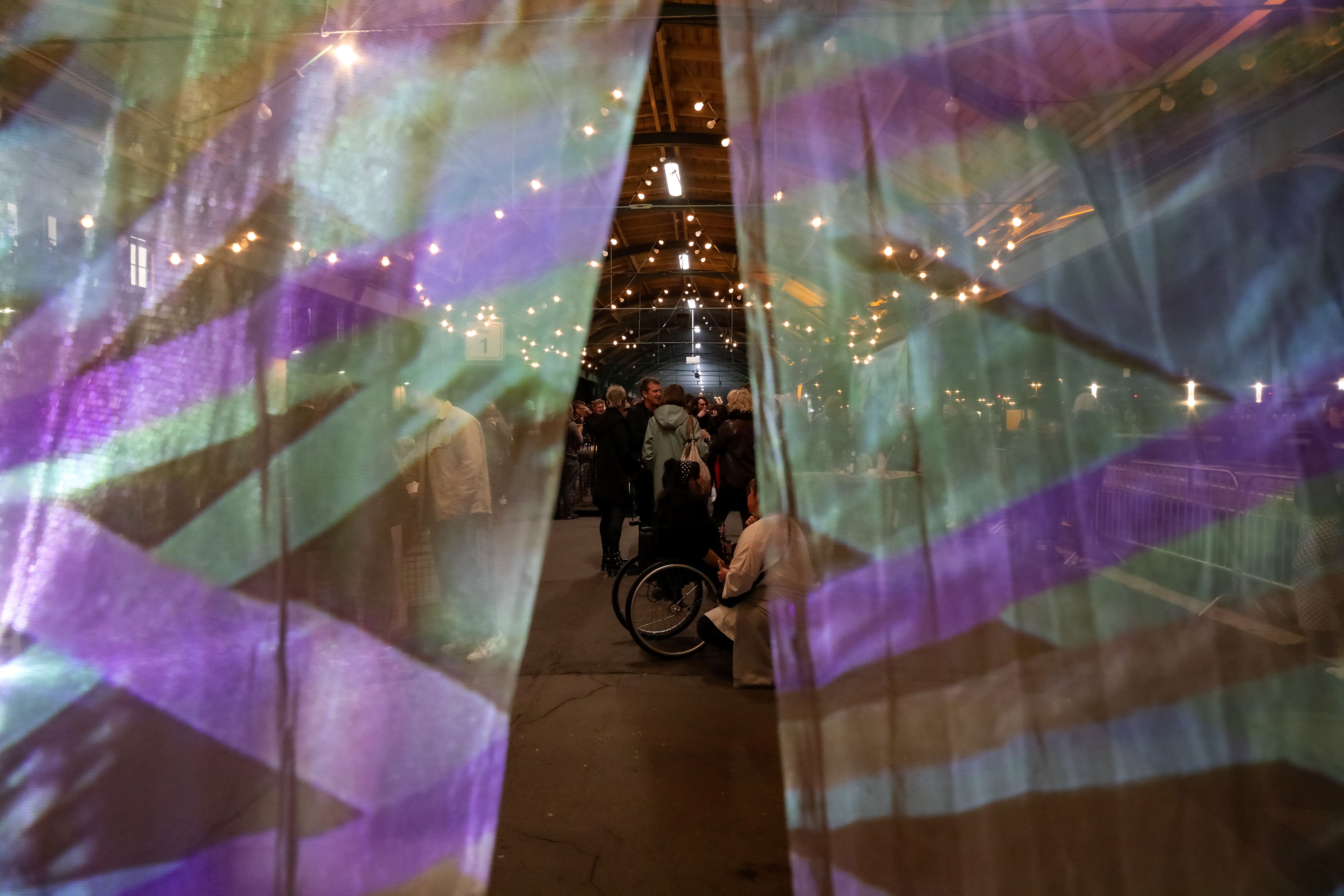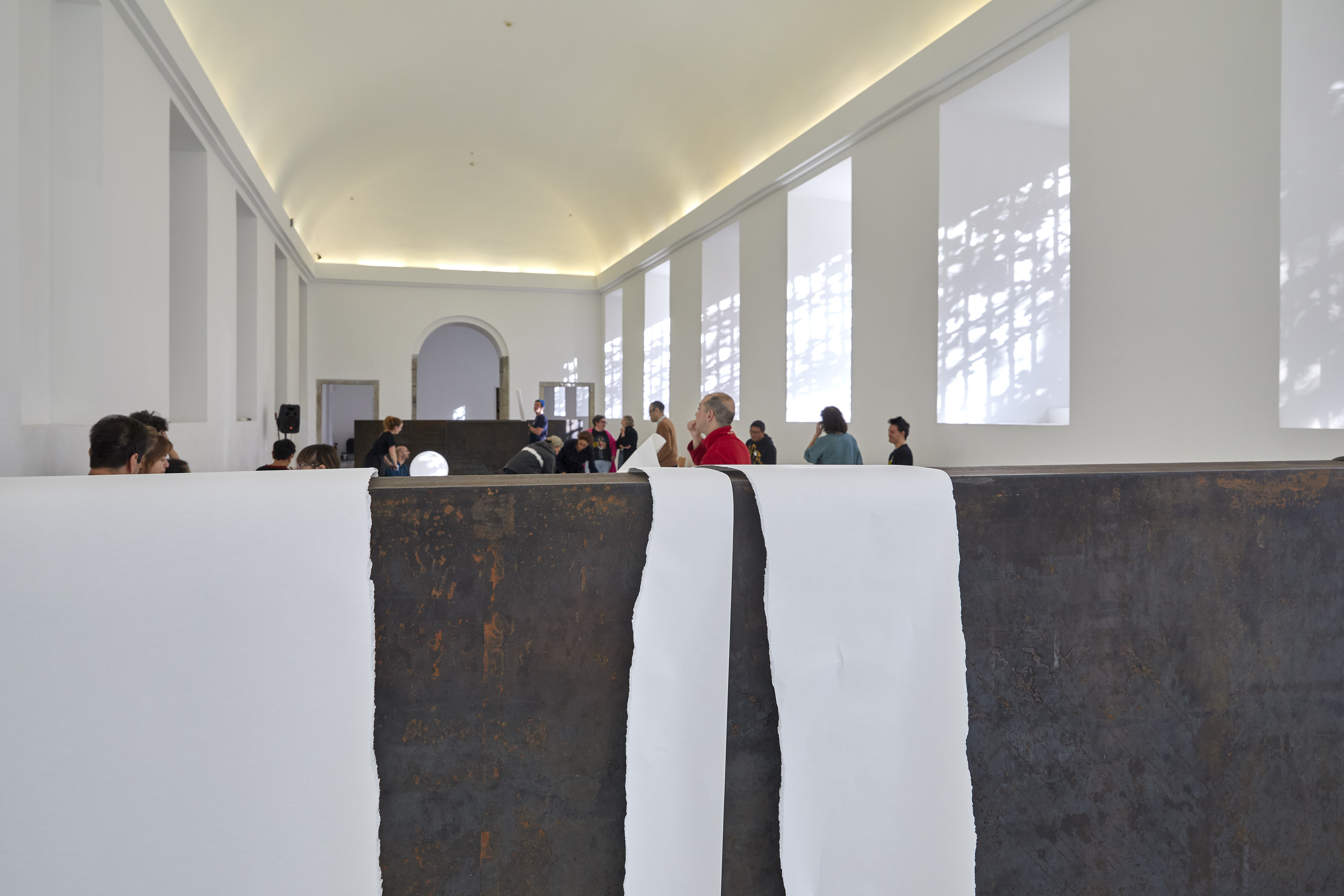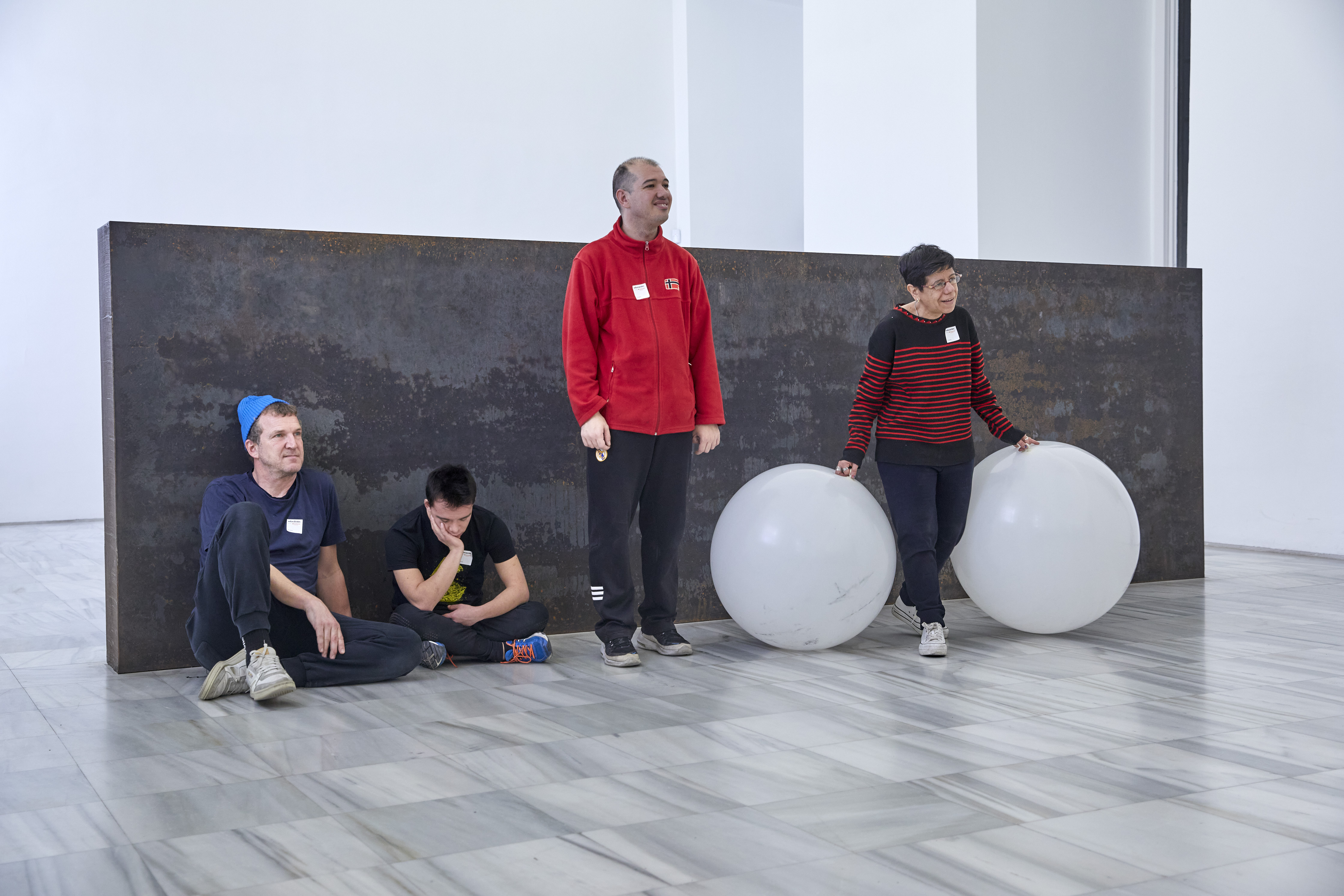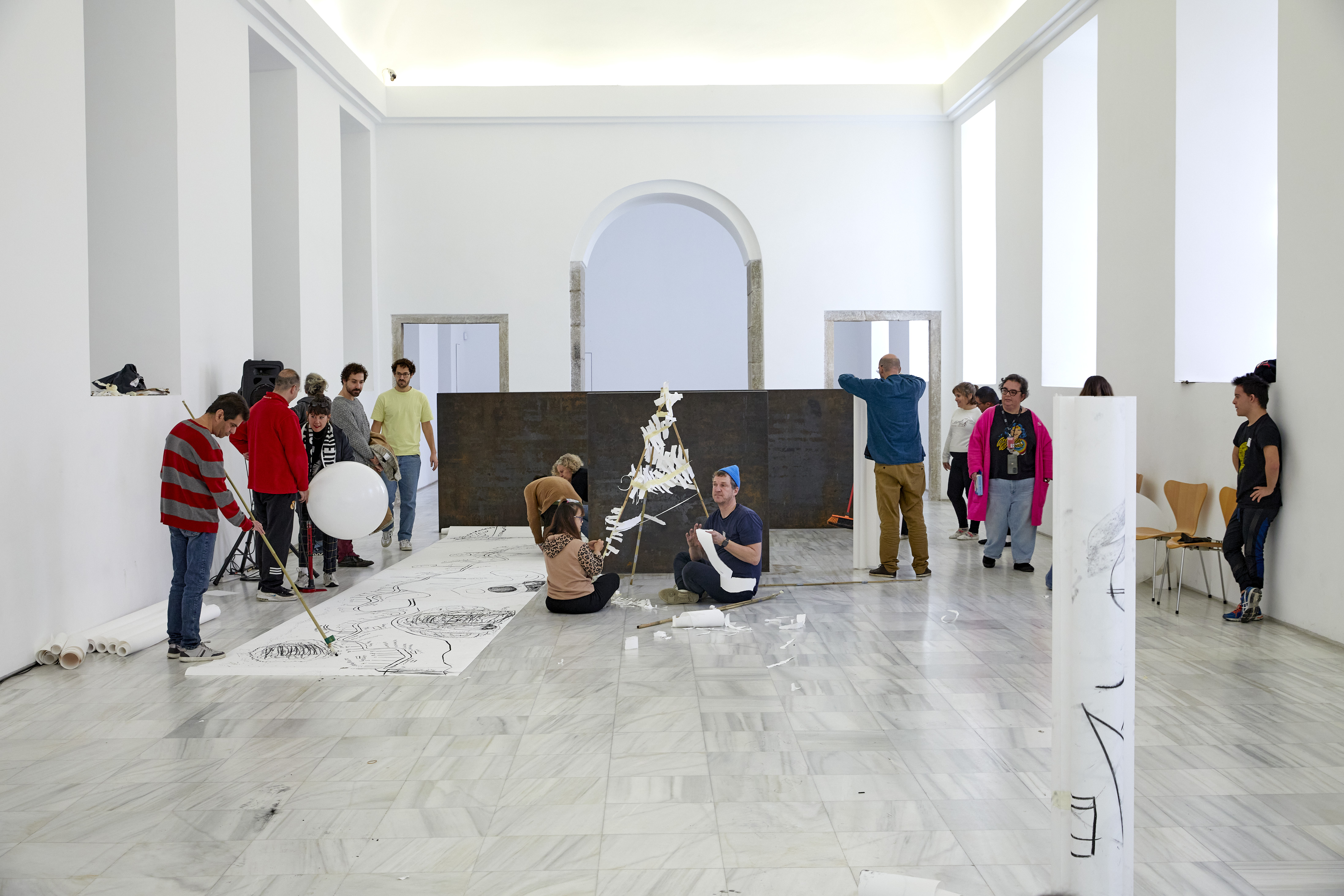“At present, we operate in a system where we do have systemic structures that can provide support, but they tend to be very adversarial. People who need support in all areas of their life aren’t actually innately vulnerable in themselves – they’re made vulnerable by adversarial systems which tend to be discretionary, especially as adults. That’s why the art we make in our supported studios has no boundaries: it operates on the basis of fixing environments and not people, so the environment we create enables freedom, which then enables a person to flower and to be free and to respond and to lead the development of a practice, whatever that might be. That then creates a real sense of value and agency for the individual, which then radiates out to the family. In this way, artistic practice can reposition someone as not an object of need and of risk and of assessment and of services and of public funds, but as an extremely vital creative force’
Kate Adams / Conversation between Project Art Works and Trampoline House, dunring the public programme Lumbung Konteks (documenta fifteen, 2022).
“It’s about putting the focus on our surrounding environments, not on the person.”
Costa Badía, Museums are not for sitting. Chronicle of a summer (2022)
Curators: Costa Badía (Museo Reina Sofía, Education Department), Carlota Mir, Carlos Almela (Hablarenarte)
Collaborating artists & thinkers: Project Art Works, Colectivo Debajo del Sombrero, Psicoballet Maite León, Diversorium (María Oliver), El elemento, Las Raras, Lukasz Michalak, Amelia Baggs, Grace Denton, Ivan Sette (Espositivo Mad), Alessandra Sapoznik, Elena Prous, amongst others.
Collaborating organisations: APAMA, Autismo España, Cocemfe, Plena Inclusión, Spanish Ministry of Culture.
In the framework of the International Day of Persons with Disabilities -established by the United Nations- hablarenarte and Carlota Mir, in collaboration with the Education Department of the Museo Reina Sofía and the British collective Project Art Works are organising the fifth edition of the museum’s annual conference on functional diversity.
The current edition, Vulnerable (Dis)encounters, is a public programme that seeks to enable a space of convergence between the realities of disability, neurodivergence and care, understood within the broader framework of functional diversity. Based on solidarity, empathy, interdependence, and cultural rights, the programme will prioritise the experiences of neurodivergent and differently abled individuals. It aims to create an environment without hierarchies, where the focus is on being present, sharing, and engaging in conversations.
The title of the conference focuses on vulnerability. Our shared fragility as human beings is emphasised and categorised within the medical and legal systems discussed by Project Art Works and Costa Badía. These environments that disable us, in different and specific ways, are the ones that call for intervention: it is on them that the responsibility for change must be placed.
Vulnerable (dis)encounters aims to be a space where the artistic community, activists and the community fabric meet and propose their own alliances, generating lasting changes and influencing institutions and policymaking from the bottom up.
The conference will explore questions related to cultural rights, aiming to address various perspectives and impact community strategies and public policies. One key topic of discussion will be accessibility and its manifestation in different contexts. How can institutions heal in order to take better care? What is the meaning of activism for a non-verbal community? How far is identity useful? What is a diagnosis for? How can we implement care approaches to mental health that prioritize the specific needs and experiences of individuals with neurological and cognitive disabilities? Can we celebrate all individuals?
This programme includes workshops, an intervention in the Richard Serra room of the Museum, an assembly, a film screening, and a party. It invites activists, artists, researchers, educators, caregivers, associations, institutions, and the general public to participate in these events by providing feedback, collaborating, and enjoying the collective experience.










